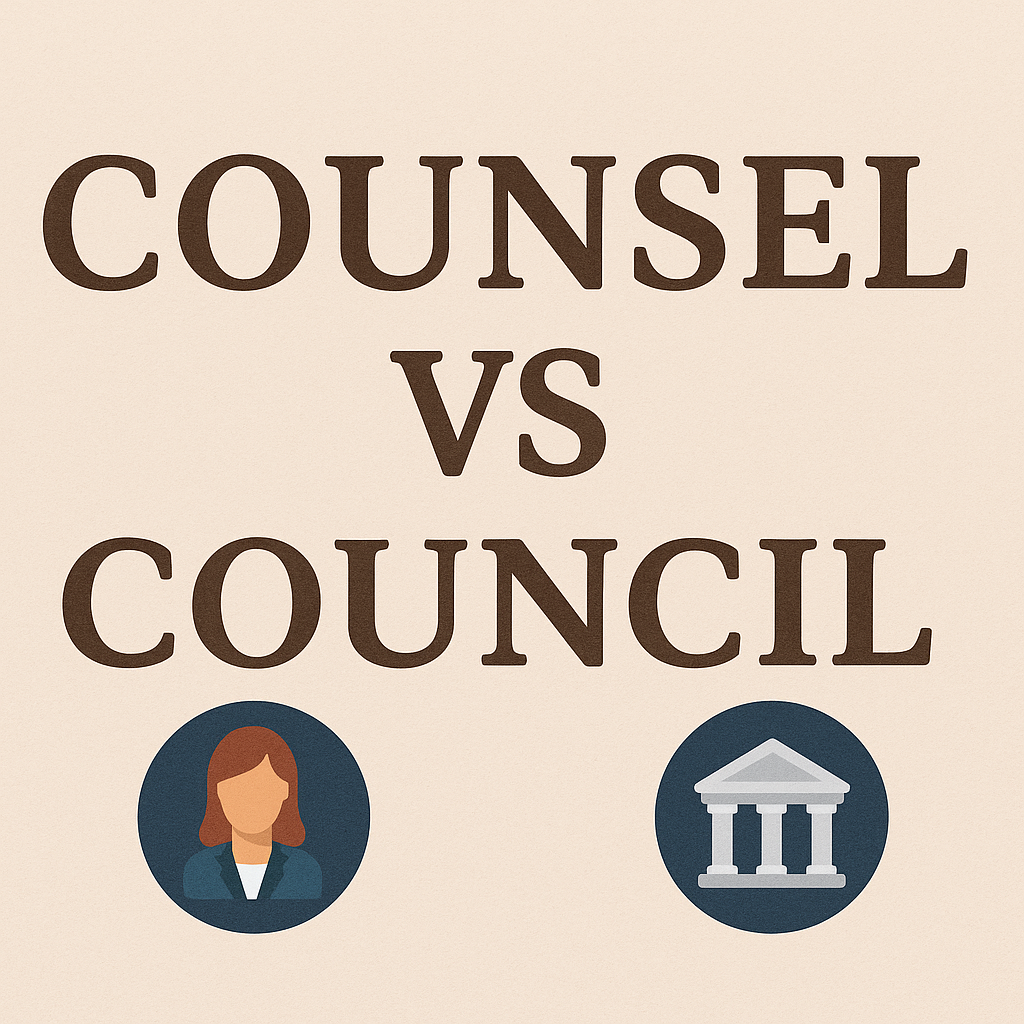Counsel vs Council

Have you ever mixed up “counsel” vs “council”? You’re not alone. These two words are homophones, they sound the same but have different meanings and spellings. In writing, choosing the wrong one can lead to serious misunderstandings, especially in legal, educational, or governmental contexts. Let’s break them down so you never misuse them again.
Grammatical Explanation
| Word | Part of Speech | Meaning | Example |
|---|---|---|---|
| Counsel | Noun/Verb | Advice given formally; or a lawyer/legal advisor; also, the act of advising | She sought legal counsel. He counseled her through the process. |
| Council | Noun | A group of people assembled for consultation, deliberation, or decision-making | The city council meets every Thursday. |
- Counsel can function as both a verb (to advise) and a noun (an advisor or the advice itself).
- Council is always a noun and refers to a group or assembly, not an individual.
Real-Life Examples of Counsel vs Council
Counsel:
- Before making the investment, I asked my lawyer for counsel.
- The therapist counseled the family during their crisis.
Council:
- The local council approved the new housing development.
- She was elected to the student council in her final year.
Common Mistakes to Avoid in Counsel vs Council
He sat on the school counsel.
He sat on the school council.
The judge gave the council time to prepare.
The judge gave the counsel time to prepare.
These errors are easy to make in writing because the words are pronounced identically. Always double-check the context.
Memory Tips
- Counsel = Counselor = Think legal or advice.
- Council = Committee = Think group or assembly.
- A “Council” has a double “C”, just like “Committee” or “City Council.”
Conclusion
To summarize:
- Use counsel when referring to advice or a legal advisor.
- Use council when referring to a group of decision-makers.
Mastering this difference not only improves your grammar but also makes your writing appear more polished and professional especially in legal, political, or organizational communication.
- Effected vs Affected – another confusing word pair with legal usage overlaps.
- Merriam-Webster Dictionary: Counsel vs Council